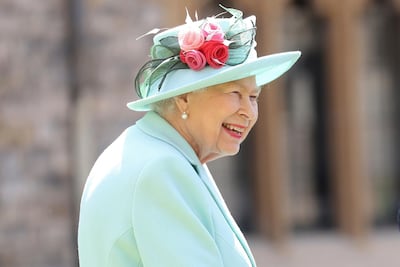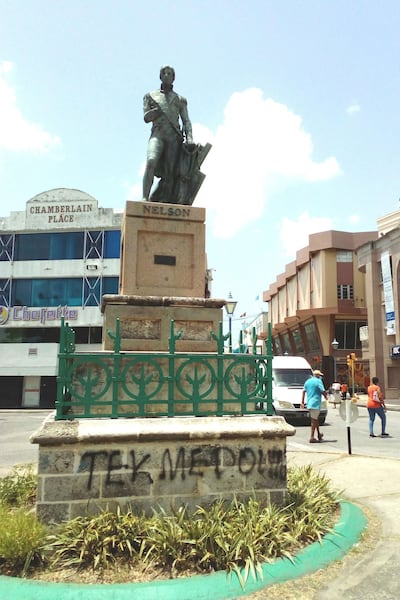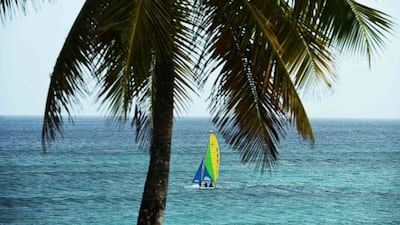The British Commonwealth is an odd creation. It has its roots in the British Empire, but that empire is long gone, even if not forgotten. The 21st century Commonwealth brings together 54 nations, mostly former British colonies, including India, Pakistan, Zambia, Grenada, Malawi, Australia and Canada. It is remarkable since these countries are large and small, rich and poor, from the north and south.
But now one of the members of that Commonwealth, Barbados, has announced that by November 2021, the Queen will no longer be the country’s head of state. Politicians in that small Caribbean island say they want "full sovereignty" by the time the island celebrates its 55th anniversary of independence from the UK in November 2021.
As the Governor-General Dame Sandra Mason put it: "The time has come to fully leave our colonial past behind.” Dame Sandra’s words are a reminder that the one country which has failed to leave the colonial past behind is England itself.
Barbados has a population of just 286,000 people and a long history of colonisation by European powers who brought slaves from Africa to work mainly on sugar plantations. For the people of Barbados, accepting as head of state a monarch based in a country on the other side of the Atlantic no longer makes sense. Barbados joins other British ex-colonies, including India and Pakistan, which remain part of the Commonwealth but choose a head of state from their own land and people.

From November 2021, just 15 members of the Commonwealth will retain the Queen – Antigua and Barbuda, Australia, Belize, Canada, Grenada, Jamaica, New Zealand, Papua New Guinea, St Kitts and Nevis, St Lucia, St Vincent and the Grenadines, Solomon Islands, The Bahamas and Tuvalu. Australians continue to debate whether having a British monarch as head of state is appropriate in the 21st century. Some Caribbean nations may also decide to follow the lead of Barbados.

All this comes when the former “Mother Country” is facing its own identity crisis. The United Kingdom of Great Britain and Northern Ireland is an increasingly dis-United Kingdom. Brexit means the Scottish government has made clear it intends to seek a new referendum on independence because Scotland voted overwhelmingly to stay in the EU and is being dragged out against its will.
In May 2021 Scots will go to the polls to elect a new Scottish parliament and the First Minister Nicola Sturgeon hopes to use the results as a springboard to demand what Scots call #indyref2. The polls show support for independence at 54 per cent. Boris Johnson’s government’s repeated failures on coronavirus and Brexit have stiffened the resolve of many Scots to leave the current United Kingdom arrangement. Northern Ireland, like Scotland, voted to remain in the EU, and support for a United Ireland appears to be growing.
The only group in Northern Ireland consistently for the union are those over the age of 65, but Boris Johnson’s cavalier decision to agree to a customs border between Northern Ireland and the rest of the UK was greeted with dismay by Ulster unionists. Mr Johnson has now attempted to reverse that decision by considering breaking international law. The Brexit fiasco has not convinced Ulster people to trust him or his judgement.
Behind all this lies the sense that the British government is stuck in the past while other countries – including Barbados – are moving forwards.
Mr Johnson made a big fuss about singing “Rule, Britannia” at the Royal Albert Hall, a song written in 1740. A prominent Conservative politician, Jacob Rees-Mogg was described as “ein lebendes Fossil” – a living fossil – in a German newspaper.
Many Brexit advocates, including Mr Rees-Mogg, speak of “taking back control” and “taking our country back,” pining for a lost past rather than offering coherent plans for the future.
Ross Greer, a Green party Member of the Scottish Parliament, summed up the political situation at Westminster by tweeting he was in favour of Scottish independence “because I want to live in a 21st century European nation, one which gets the governments it votes for, not in an 18th century tribute act having a profound post-imperial identity crisis.”
Barbados is moving forward. Ireland has changed profoundly in 20 years. Scotland and Northern Ireland are considering the future, but too many English politicians like Mr Johnson and Mr Rees-Mogg, are stuck in hazy visions of past imperial glories. In 1962, US Secretary of State Dean Acheson, said Britain had lost an Empire but had not yet found a role.
He went on to explain: “Britain's attempt to play a separate power role – that is, a role apart from Europe, a role based on a 'special relationship' with the United States, a role based on being the head of a Commonwealth which has no political structure or unity or strength and enjoys a fragile and precarious economic relationship – this role is about played out.”
Unfortunately the British prime minister hasn’t yet quite grasped all this. The “separate power role” is now utterly “played out.” The question for England’s future is, what remains?
Gavin Esler is a UK columnist for The National


